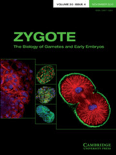
ZYGOTE
Scope & Guideline
Unraveling Cellular Mysteries, One Study at a Time.
Introduction
Aims and Scopes
- Reproductive Biology and Embryology:
ZYGOTE focuses on the processes of reproduction, including gamete formation, fertilization, and embryonic development across various species, highlighting both fundamental biological mechanisms and applied aspects. - Assisted Reproductive Technologies (ART):
The journal publishes research on various ART techniques such as in vitro fertilization (IVF), intracytoplasmic sperm injection (ICSI), and embryo cryopreservation, emphasizing advancements and clinical outcomes. - Epigenetics and Developmental Biology:
Research exploring the role of epigenetic modifications in gamete quality, embryo development, and fertility is central to the journal, providing insights into how environmental factors and genetic background can influence reproductive success. - Comparative Studies Across Species:
ZYGOTE includes comparative studies that investigate reproductive processes in different species, from mammals to fish, providing a broader understanding of reproductive strategies and mechanisms. - Innovative Methodologies:
The journal highlights the development and application of innovative methodologies, such as time-lapse imaging, microfluidics, and advanced molecular techniques, contributing to improved research outcomes in reproductive sciences.
Trending and Emerging
- Molecular and Genetic Mechanisms in Reproduction:
There is an increasing focus on understanding the molecular and genetic underpinnings of reproduction, including gene expression studies and the role of non-coding RNAs in gamete and embryo development. - Impact of Environmental and Lifestyle Factors on Reproductive Health:
Recent studies are increasingly exploring how external factors, such as pollutants, stress, and dietary components, influence reproductive outcomes, emphasizing the need for a holistic understanding of fertility. - Technological Innovations in ART:
Research on new technologies and methodologies in assisted reproduction, such as advanced cryopreservation techniques and embryo selection algorithms, is on the rise, reflecting the demand for improved clinical practices. - Epigenetic Influences on Fertility:
Emerging studies are highlighting the significant role of epigenetic modifications in reproduction, particularly how they affect gamete quality and embryo viability, marking a shift towards a more integrative view of fertility. - Cross-Species Applications of Reproductive Technologies:
There is a growing trend towards applying reproductive technologies developed for one species to other species, demonstrating the versatility and potential for broader applications in agriculture and conservation.
Declining or Waning
- Traditional Embryo Morphology Studies:
There has been a noticeable decrease in studies focusing solely on morphological assessments of embryos, as newer techniques and metrics, such as morphokinetics, gain traction in predicting developmental outcomes. - Basic Animal Breeding Studies:
Research centered on conventional breeding practices without the integration of modern reproductive technologies or genetic assessments appears to be waning, indicating a shift towards more innovative and technology-driven approaches. - Environmental Impact Studies on Reproduction:
While environmental influences on reproduction were historically a significant focus, recent publications suggest a decline in this area, possibly due to a broader emphasis on molecular and genetic factors. - Single-Species Focused Studies:
Research that concentrates exclusively on a single species, particularly in non-model organisms, is becoming less common as comparative and cross-species studies are increasingly favored for their broader applicability. - Nutritional Studies on Gamete Quality:
Investigations into the effects of basic nutritional interventions on gamete quality are less frequently published, likely due to a shift towards more complex interactions, including genetic and epigenetic factors.
Similar Journals

DEVELOPMENT GROWTH & DIFFERENTIATION
Driving Insights into Developmental ProcessesDEVELOPMENT GROWTH & DIFFERENTIATION, published by Wiley, stands as a vital journal in the realms of Cell Biology, Developmental Biology, and Medicine. With an ISSN of 0012-1592 and E-ISSN of 1440-169X, this esteemed journal has been a key player in the scientific community since its inception in 1969, continuing to contribute significantly to the understanding of developmental processes and mechanisms underlying growth and differentiation. Ranked Q3 in Cell Biology and Developmental Biology, and Q2 in miscellaneous aspects of Medicine as of 2023, the journal provides a platform for high-quality research articles, reviews, and critical insights that foster academic discourse in these vital fields. Although currently not available as open access, the journal ensures the availability of essential research to its global readership, facilitating collaboration and innovation. Researchers, professionals, and students alike will find DEVELOPMENT GROWTH & DIFFERENTIATION to be an invaluable resource for advancing knowledge and driving forward the scientific inquiry into the intricacies of biological development.
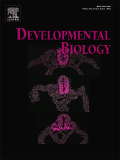
DEVELOPMENTAL BIOLOGY
Transforming Knowledge in Cell and Molecular BiologyDEVELOPMENTAL BIOLOGY, published by Academic Press Inc., Elsevier Science, stands as a pivotal journal in the fields of cell biology, developmental biology, and molecular biology since its inception in 1959. Renowned for its rigorous peer-review process, this journal serves as a platform for publishing cutting-edge research, reviews, and insights that drive forward our understanding of developmental processes at the cellular and molecular levels. With an impressive track record, it is classified in the Q2 quartile across multiple categories, reflecting its significant impact and relevance in academia and research communities. Although the journal does not provide Open Access options, it remains accessible via numerous academic databases, ensuring a wide reach for researchers, professionals, and students alike. With a commitment to advancing the field, DEVELOPMENTAL BIOLOGY continues to be essential reading for those looking to stay at the forefront of developmental research and its applications.
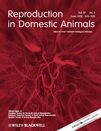
REPRODUCTION IN DOMESTIC ANIMALS
Elevating Standards in Animal Reproductive ResearchREPRODUCTION IN DOMESTIC ANIMALS is a distinguished peer-reviewed journal published by Wiley that has been at the forefront of advancing knowledge in the field of animal science since its inception in 1966. With an ISSN of 0936-6768 and an E-ISSN of 1439-0531, this journal specializes in the intricate aspects of reproductive biology in domestic species, supporting both scientific research and practical applications in agriculture. Ranked Q2 in Animal Science and Zoology and Q3 in both Biotechnology and Endocrinology, the journal plays a crucial role in addressing contemporary challenges in animal reproduction, contributing significant insights to researchers, professionals, and students alike. Although it does not currently offer open access, its editorial team is committed to publishing high-quality studies that enhance our understanding of reproductive mechanisms and foster advancements in the field. The convergence of data, innovative methodologies, and practical implications in the journal fosters a rich dialogue among scientists and practitioners worldwide, making it an essential resource for anyone invested in animal reproductive health.
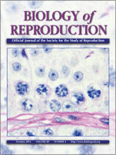
BIOLOGY OF REPRODUCTION
Elevating Knowledge in Cell and Reproductive BiologyBIOLOGY OF REPRODUCTION is a premier journal published by Oxford University Press Inc, dedicated to advancing research in the fields of reproductive biology, cell biology, and reproductive medicine. With an impressive impact factor and a strong ranking as Q1 in reproductive medicine and miscellaneous medicine, as well as Q2 in cell biology, this journal offers a vital platform for disseminating innovative findings and pivotal studies that shape our understanding of reproductive processes. Since its inception in 1969, BIOLOGY OF REPRODUCTION has become a key resource for scientists, clinicians, and students alike, providing insights that drive the future of reproductive health and research. Although not an open-access publication, it remains a respected authority, reflecting a commitment to high-quality peer-reviewed articles. The journal's comprehensive scope includes molecular and cellular aspects of reproduction, reproductive health, and associated technologies, making it indispensable for professionals looking to stay at the forefront of breakthroughs within the field.
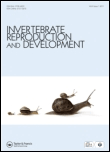
INVERTEBRATE REPRODUCTION & DEVELOPMENT
Advancing Knowledge in Reproduction and Development.INVERTEBRATE REPRODUCTION & DEVELOPMENT, published by Taylor & Francis Ltd, is a pivotal journal in the fields of Animal Science and Zoology, with a significant focus on the reproductive and developmental processes of invertebrates. Established in 1989 and running through 2024, this journal has become an essential resource for researchers, professionals, and students interested in the intricacies of invertebrate biology. With an impressive Q2 ranking in Animal Science and Zoology and a dedicated readership, the journal explores a variety of topics including reproductive mechanisms, developmental stages, and phylogenetic aspects of invertebrates. While currently not open access, the journal provides robust scholarly content that contributes to advancing knowledge in both basic and applied biological sciences. The Scopus rankings further underscore its relevance, particularly in the domains of developmental biology and genetics, making it a noteworthy publication for those engaged in this dynamic field of research.

Animal Reproduction
Empowering the next generation of reproductive biologists.Animal Reproduction is a premier open-access journal published by the Brazilian Coll Animal Reproduction, focusing on the dynamic field of reproductive biology within both veterinary science and animal husbandry. Established in 2004, the journal has rapidly gained prominence, securing a Q2 ranking in both Animal Science and Zoology as well as veterinary disciplines as of 2023. With a growing impact factor and an engaged readership, Animal Reproduction serves as a vital platform for researchers, professionals, and students seeking to disseminate and gain insights into the latest studies and innovations in animal reproductive health and technology. Based in Brazil, the journal's content spans a wide array of topics essential for advancing the scientific understanding of reproduction in animals, thus contributing to improved practices in veterinary medicine and livestock management. The journal is indexed in major databases such as Scopus, ensuring that the research published is accessible to a global audience. Whether you're a seasoned researcher or a student looking to deepen your knowledge, Animal Reproduction is indispensable for anyone engaged in this critical area of study.

Reproduction and Fertility
Exploring the frontiers of fertility science.Reproduction and Fertility is a premier academic journal published by BIOSCIENTIFICA LTD, dedicated to advancing knowledge in the fields of reproductive sciences, obstetrics, gynecology, and related areas. Established with a focus on delivering high-quality research, this journal has quickly ascended in prominence, achieving a commendable Q2 ranking in multiple categories, including Embryology, Obstetrics and Gynecology, Reproductive Medicine, and Urology, as of 2023. With an E-ISSN of 2633-8386, Reproduction and Fertility aims to provide a valuable platform for researchers, professionals, and students alike, offering insights into the latest discoveries and innovations in reproductive health. Although currently not an open-access journal, it remains committed to disseminating important findings that can influence clinical practices and policy-making worldwide. Operating from its headquarters in Bristol, United Kingdom, the journal serves as an essential resource for anyone invested in understanding and improving reproductive health outcomes through rigorous academic research.

Reproductive Medicine and Biology
Transforming knowledge into practice in reproductive health.Reproductive Medicine and Biology, an esteemed journal published by WILEY, stands at the forefront of advancements in the field of reproductive health and associated biological sciences. With an impact factor that underscores its relevance—ranking in Q1 for Reproductive Medicine and Q3 in Cell Biology—this journal is distinguished by its commitment to disseminating high-quality, peer-reviewed research since its transition to Open Access in 2002. Based in Japan, the journal caters to a global audience, providing vital insights into reproductive biology, therapeutics, and innovative practices. With Scopus rankings placing it at #22 out of 90 in Reproductive Medicine and a commendable percentile ranking, Reproductive Medicine and Biology aims to foster dialogue and knowledge transfer among researchers, professionals, and students, paving the way for breakthroughs in understanding reproductive health.
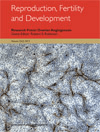
REPRODUCTION FERTILITY AND DEVELOPMENT
Advancing knowledge in reproductive science and developmental biology.Reproduction, Fertility and Development, published by CSIRO Publishing, is a prestigious journal that has been at the forefront of research in the fields of reproductive science, developmental biology, and related disciplines since its inception in 1989. With an ISSN of 1031-3613 and an E-ISSN of 1448-5990, this journal serves as a vital platform for disseminating innovative findings and methodologies that advance our understanding of reproductive processes and development in a variety of organisms. The journal is indexed in prominent databases, exhibiting a solid standing with a Q3 quartile ranking in both Animal Science and Zoology and Biotechnology, and covering 2023 rankings in multiple related categories. Operating from Australia, Reproduction, Fertility and Development embraces a commitment to enriching scholarly communication and fostering collaborative research efforts. Its focus on high-quality, peer-reviewed articles makes it an essential resource for researchers, professionals, and students seeking to stay abreast of the latest advancements and pivotal discussions in reproductive medicine and developmental biology.

MOLECULAR REPRODUCTION AND DEVELOPMENT
Innovating methodologies to illuminate molecular mechanisms.MOLECULAR REPRODUCTION AND DEVELOPMENT is a prestigious peer-reviewed journal published by WILEY, specializing in the intricate domains of Cell Biology, Developmental Biology, and Genetics. Since its inception in 1988, this journal has been a vital platform for disseminating pioneering research and innovative methodologies that advance our understanding of molecular mechanisms driving reproduction and development. With a current impact factor reflective of its significance in the field, MOLECULAR REPRODUCTION AND DEVELOPMENT is ranked Q3 in both Cell Biology and Developmental Biology, and Q2 in Genetics, underscoring its relevance and scholarly contribution. Catering to a diverse audience of researchers, professionals, and students, this journal not only showcases cutting-edge findings but also aims to foster interdisciplinary exchanges that enhance scientific collaboration. By exploring critical biological processes, it ultimately contributes to the broader understanding of health and disease in various organisms, making it an essential resource for anyone dedicated to the life sciences.